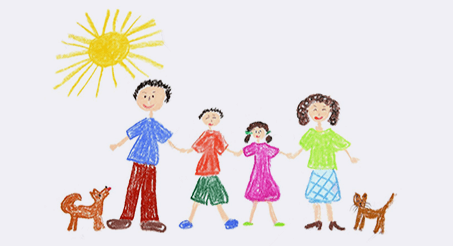Selective Mustism Treatment in London
Does your child become extremely anxious in certain environments, to the point they can’t talk? Or is it you yourself who has long been speechless in certain situations, and it’s left you leading a life of limitations?
What is selective mutism?
The definition of selective mutism is that in certain environments or around certain people you will freeze and find you can’t speak, no matter how much you would like to.
Sometimes called ‘elective mutism’, it’s not necessarily that you are shy. In the presence of those you like and trust you will be social, or even very talkative.
My child won't talk at school
Selective mutism is often noticed between ages two to four when your child starts preschool, or is otherwise put into new social situations. More common in girls, it’s also often seen in children who have recently moved to a new country where they must speak a language other than their maternal tongue.
Note that in some cases of selective mutism a child still uses simple words, sounds or gestures. But it is far from their usual language competence.
But my child is so chatty at home
It might be a surprise to hear from teachers your child is not talking at school when they are so chatty at home, and otherwise well developed.
But selective mutism is not about being shy or intellectually challenged. It’s just that certain things trigger feelings of panic, like a form of stage fright. Most people diagnosed with selective mutism are also diagnosed with social anxiety.
A diagnosis of selective mutism
Selective mutism was previously considered a childhood disorder by the ICD-10, the World Health Organisation’s medical manual that is used for diagnosis in the UK. But it is now being reclassified as an ‘anxiety or fear related disorder’.
To receive a diagnosis, your child must:
- Have language competence in specific social settings but not others.
- Have enough of an issue it effects their socialising or learning.
- Struggled for a month or more, not including their first month of school.
- Not struggle simply as the language is not their maternal tongue or is still new to them.
- Not have symptoms better explained by another disorder like autism or neurodevelopment disorder.
Further symptoms in children
Other signs of selective mutism can include your younger child:
- freezing their body and/or their facial expressions
- hiding behind you or clinging
- sulking or being very distracted
- showing anxiety in noisy or busy places
- having tantrums when going to or from a certain place.
And in older children others signs can look like:
- a fear of making mistakes
- not able to talk about how they feel but sensitive to how others feel
- refusing to do oral school presentations
- bladder infections from fear of asking to go to the toilet at school
- not eating or drinking at school
- often feeling sick on school days.
Selective mutism in adults and adolescents
If selective mutism isn’t diagnosed as a child, and you are misunderstood to be shy, defiant, or with learning problems? It can mean you end up an adolescent or adult with selective mutism that sees you live far beneath your potential.
This can look like:
- avoiding job interviews
- difficulty with phone calls
- unable to stand up for yourself
- low self-esteem
- not liking to go out alone
- ending up financially dependent on family or a partner.
Causes of selective mutism
The exact causes of selective mutism are unknown. It's thought that many children with the condition are born predisposed to anxiety, with what is called an 'inhibited temperament' from infancy. The stress centre of their brain is overexitable, leading to higher distress and social withdrawal [1].
Note that there is no research to connect childhood trauma to selective mutism. Trauma can cause a child to suddenly stop speaking, but it will be in situations they were previously fine in, and there will be other behavioural changes.
Selective mutism treatment - The Harley Therapy™ approach
Medication can help adolescents and adults if they also suffer from anxiety and depression, but it's not the recommended treatment pathway for selective mutism.
Instead behavioural therapies are suggested, such as CBT, which helps you understand and manage the link between your thoughts, feelings, and actions, and can help you challenge your fears and assumptions.
Techniques based on CBT can also be used to help children, along with many other behavioural tools such as positive and negative reinforcement and 'stimulus fading'. This sees your child and you talk with a third person, and when things are comfortable, you withdraw. Your child psychologist will explain these techniques and several others with you when making the right treatment plan for your child.
Find your voice again
Selective mutism treatment at Harley Therapy™ connects you with a team of highly experienced psychiatrists, child and educational psychologists, and psychotherapists, hand selected for their commitment and expertise.
Call us now or complete our online booking form to make an appointment in the City of London, London Bridge or in Harley Street.
Footnotes
[1] Gensthaler A, Khalaf S, Ligges M, Kaess M, Freitag CM, Schwenck C. Selective mutism and temperament: the silence and behavioral inhibition to the unfamiliar. Eur Child Adolesc Psychiatry. 2016;25(10):1113-1120. doi:10.1007/s00787-016-0835-4.
How to book your appointment
Call us now on 0345 474 1724 OR book online
All practitioners are qualified and accredited with reputable professional associations.
Meet the Experts
Enquiry Form
To make an enquiry, please fill in this confidential form. Our dedicated administrators will review your needs and get back to you as soon as possible.




